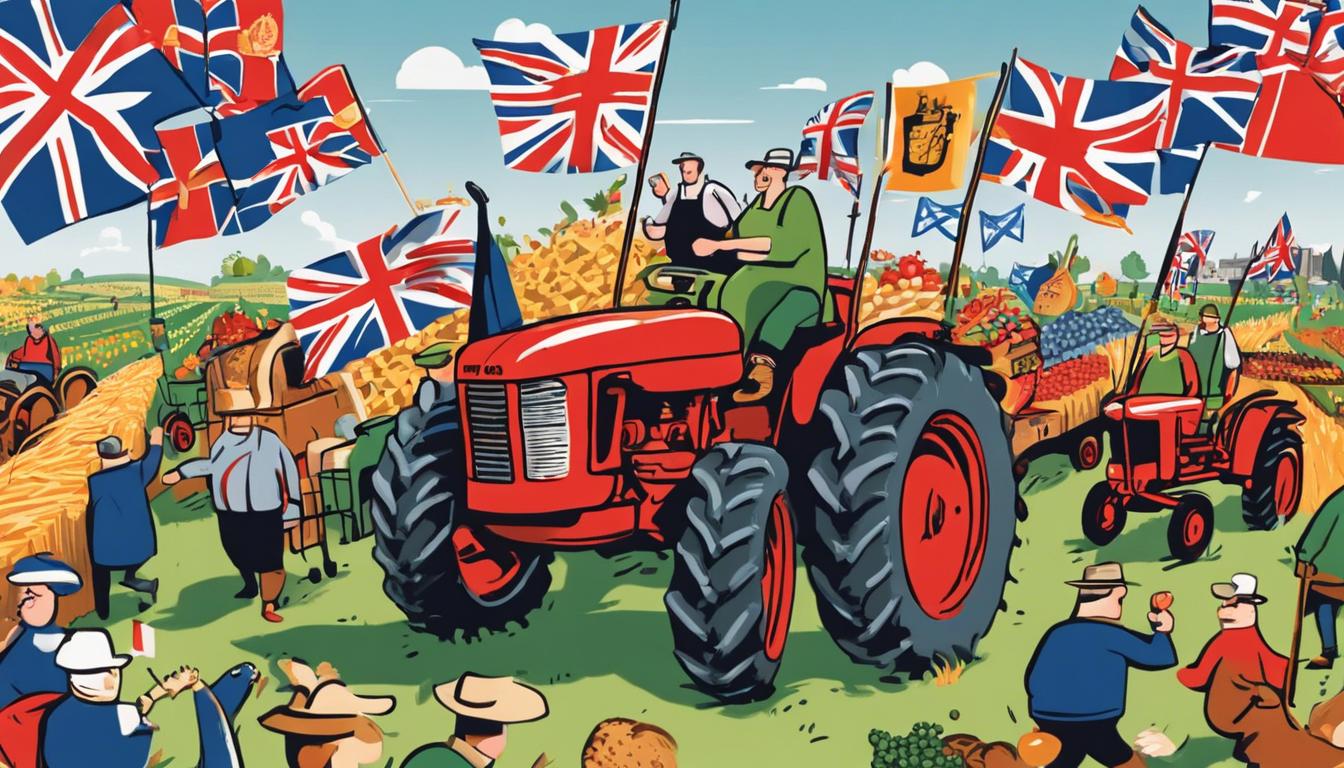Farmers from across the UK are staging a protest in Westminster with up to 100 tractors to highlight concerns over food security, the impact of substandard imports, and misleading labeling on the British farming industry. Organised by Save British Farming and Fairness for Farmers in Kent, the demonstration seeks to draw government attention to the challenges posed by trade deals and agricultural policies.
Farmers from across the UK are converging on Westminster for a significant protest involving up to 100 tractors to voice their concerns over food security and the impact of substandard imports and misleading labelling on the British farming industry. This demonstration has been organised by campaign groups Save British Farming and Fairness for Farmers in Kent, intending to draw attention to the challenges that British farmers face due to trade deals with countries like New Zealand and Australia, and broader agricultural policies.
Liz Webster, the founder of Save British Farming, has specifically criticized these trade deals, such as CPTPP, for undermining the competitiveness of British farmers by allowing lower-standard food products into the UK market. This situation has raised concerns about the future of the UK’s food standards and the sustainability of local farmers’ livelihoods. Webster has called for significant policy shifts to support local farming and preserve high food standards within the nation.
The farmers participating in the protest have also highlighted the discrepancies in treatment between British farmers and their EU counterparts, stressing the need for policies that prioritize food security and align more closely with European regulations. With an upcoming election, campaigners aim to push the incoming government to address their concerns regarding the import of substandard goods, deceptive labelling practices, and the broader future of British agriculture.
Among the protesters, young and veteran farmers alike, such as 21-year-old Ben Stickland and cauliflower farmer Geoffrey Philpott, have shared their personal fears and the potential dire consequences for the agriculture sector if the current issues are not resolved. They warn of increasing reliance on imported produce that does not meet the UK’s standards, which could lead to supply issues and escalating prices for consumers.
The UK government, however, has expressed its support for farmers, with farming minister Mark Spencer affirming their commitment to back British farmers and announcing measures to limit land diversion from food production. These actions aim to protect UK food standards and ensure fairness in the supply chain amid the farmers’ demands for a radical policy overhaul to safeguard British farming’s future.













